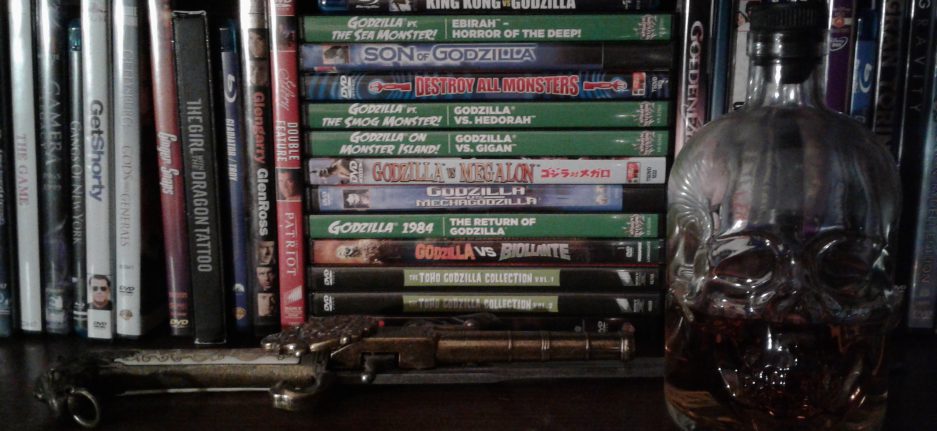I don’t have much fondness for Bradbury’s Fahrenheit 451. I read it back in high school (it was my reading material during the forced ACT session), and thought it was fine. Just fine. To this day, I don’t get the hype: put it on the pile with Song of Solomon, A Farewell to Arms, and jus about the entire Dickens oeuvre. A few years later, I watched Truffaut’s 1966 adaptation; to this day, I remember just about nothing from it. It’s a fine film, likely worthy of its critical status, but it’s not one that stuck with me at all (much like any of the other French New Wave offerings I’ve seen). Funny thing, this newest HBO-based adaptation will likely fade from my memory just as much.

It’s the same basic story: new-style fireman Guy Montag goes about setting fire to books, until he’s seduced into societal rebellion by an intriguing young woman. And many of the same core themes are present, like censorship, the power of books (more on this momentarily), the spread of mindless and controlled mass media, and the whole totalitarian government thing. We’ve got a solid cast, with Michael B. Jordan as Montag joined by Michael Shannon, Sofia Boutella, Keir Dullea, and even a brief appearance from NewsRadio‘s Khandi Alexander; and we’re led around by writer/director Ramin Bahrani, who previously gave us the excellent 99 Homes.
Unfortunately, that’s basically the last positive thing I have to say, and it had nothing to do with the film itself. Funny, that.
So, let’s start out with the aesthetic. Instead of forging a unique identity, perish the thought, the film looks like a bland amalgam of Equilibrium and V for Vendetta, both visually and thematically. There are splashes of the neon accent lighting and color that’s strangely in vogue these days (thus far, only John Wick has properly used this look to any degree of success), giving us some occasional flashes of orange and purple, but beyond that, everything is dull and lifeless. The omnipresent viewing screens, the ones that take up whole walls, look like ordinary flat screens, just larger than usual, and they’re constantly peppered by Facebook-style reaction emojis, all monochromatic, naturally. The firemen look rather similar to Equilibrium‘s enforcers (I honestly don’t remember their religiously-styled title, and, honestly, they were too dumb to wanna look it up…sorry…), clad mostly in black leather. The world never feels like a world, but rather a medium-sized set on some backlot somewhere, complete with all of the artificiality that entails. The acting is fine, as expected from the cast, but the characters don’t meld with their surroundings, they just perform their roles for us against a flat backdrop, and the script is just as lifeless as the cityscape.
Said script makes some interesting changes to Bradbury’s story, most prominently the jettisoning Montag’s wife and the establishment of a more modern take on the story. Frankly, aside from some ramifications of the loss of the wife, this approach is generally fine, but it’s the new-ish take on the novel’s themes that not only drives the film directly onto its face, but also makes me question why anyone would want to be involved with the project to begin with. Contemporary hot buttons like “fake news”, historical gaslighting (this on’es not as new, but it’s framed differently than before), social media, incredibly timely post-9/11 hysteria, and the fact that people these days are just too durn lazy to read anything but the headlines anymore take center stage in the narrative, and it all rings more hollow than a damn bell. Bradbury’s insistence on his story being about mass media strangling literature (clearly the better art form, according to a novel writer) is usually brushed aside by interpretations that favor censorship, because to do otherwise would make Montag’s rebellion a bit less, I dunno, important, and it would reek of impotent luddism (or, rather, an old man yelling at electronic clouds) and overtly reductionist thought. Unfortunately, this film dives into that interpretation headlong at times, to the point where you get the idea that physical books being lost was the problem, as though e-books just can’t cut the mustard as a method of idea-transmission. I mean, I prefer the physical thing, too, but I also enjoy the portability of my Kindle, so…
Everything is handled like this, just driving full force into what I can only call photonegative virtue signalling (showing us the good stuff by illustrating the lack thereof), and I hate using that term. It’s all just so nuance-less, so naively idealist, that it’s impossible to take anything seriously. The government is just as transparently evil and conniving as John Hurt’s cabal in V for Vendetta or a cartoonish version of the party in 1984, the populace is a faceless mass of sheep, and the imagery is too obvious for its own good: at one point, a rebellious woman, on the verge of being arrested and having her books burned by the firemen, opens her coat to reveal a set of books duct-taped to her torso and a match, the perfect combination for a martyr-style self-immolation. I mean, what’s the point of the books on her person, aside from the visual cue? It’s maddeningly dumb, the real-world reference eye-rollingly obvious, and the tone too self-important to actually work, in context or in theory.
This readaptation was a mistake from inception. Sure, the story has universal connections to mass society, but smashing them into a hole shaped like today’s media and political landscape is an exercise in cinematic futility. There’s nothing novel or interesting to be gleaned from this version, and I’d only recommend it to those who wanna see one of their favorite actors (Shannon, in my case) on screen.
